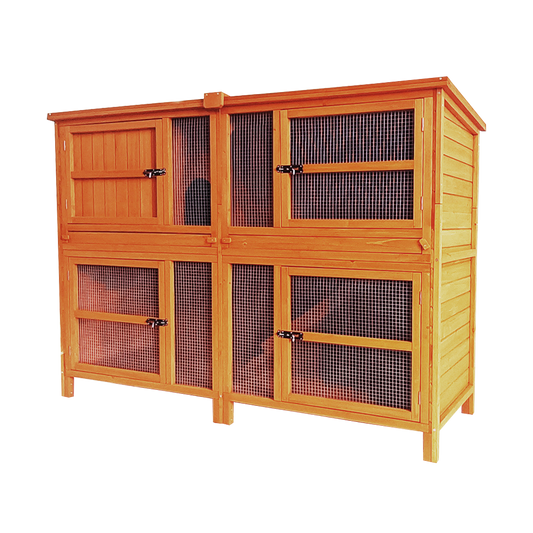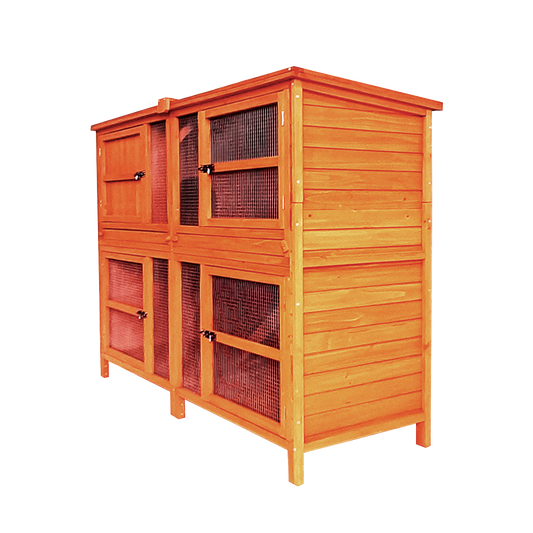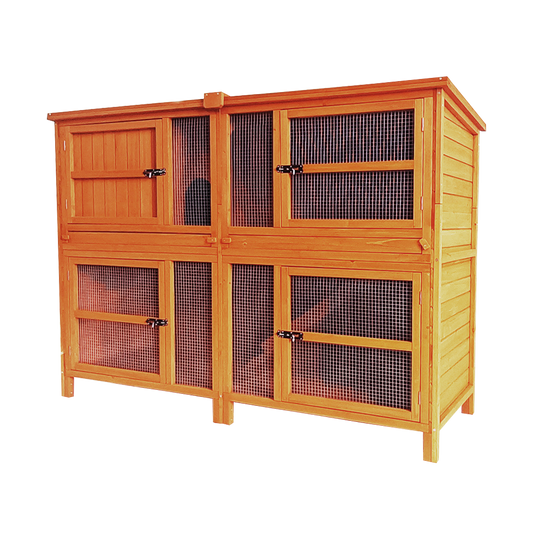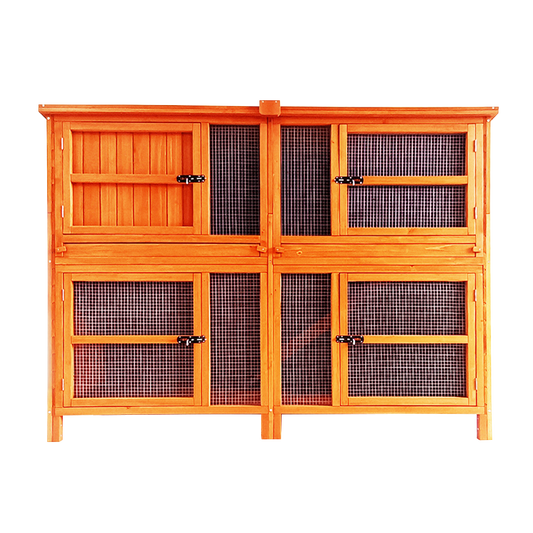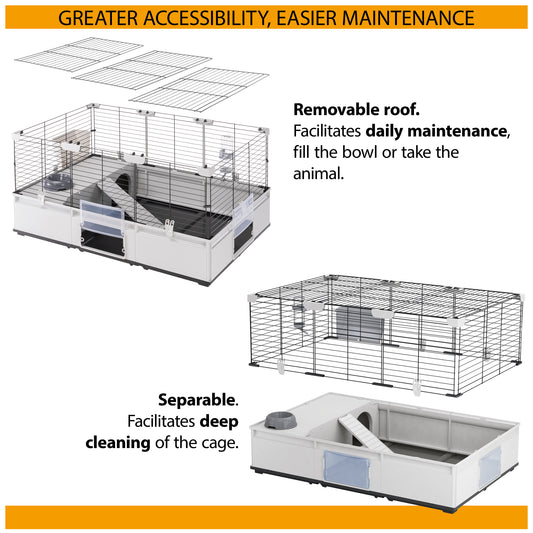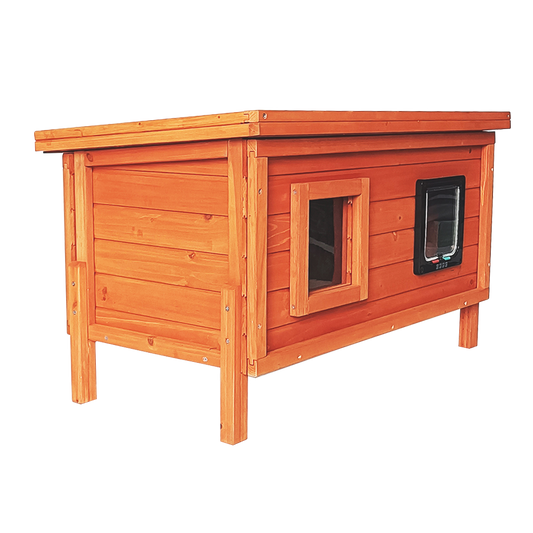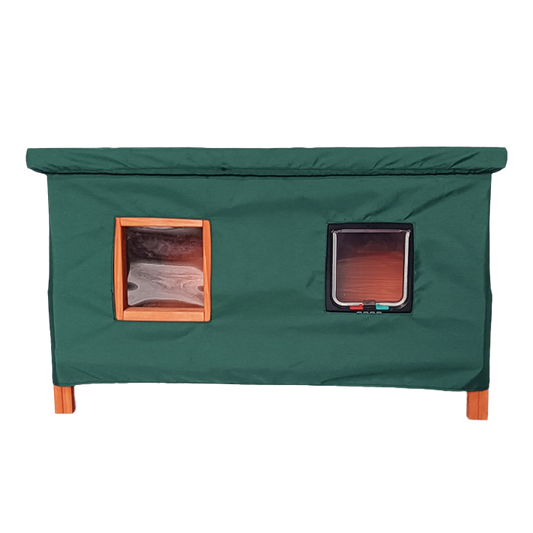As your pet ages, their care requirements will change as life begins to slow down for them. You may need to make adjustments around the home if they are becoming less mobile, or modify their diet as their nutritional requirements alter. The average life expectancy of a cat is 12-14 years but it is not uncommon for pet cats to live as long as 20 years.
Signs of ageing
Cats are generally thought of as being senior from around 11 years of age, by which time owners are likely to notice some of the following:
- A decrease in activity
- Less time spent outdoors
- A change of appetite
- Diminished senses of sight and hearing
- A change to toileting habits
- A deterioration of coat condition
- Behaviour changes, for example becoming more aggressive or seeming confused.
Maintaining a healthy weight
As cats age they are likely to be burning fewer calories due to being less active, which can put them at risk of weight gain. Consider switching your cat to a specific senior variety of food so that it is easier to keep them at a healthy weight.
Weight gain in an ageing cat can drastically reduce their life-expectancy as well as being linked to a variety of diseases such as diabetes, heart disease and urinary bladder stones. There is also a much higher likelihood of mobility problems and arthritis as old joints struggle to carry extra weight.
Making life more comfortable
If your cat is suffering with stiff joints, it may be uncomfortable bending down to food and cat water bowls. Consider swapping to a raised cat feeder or put something under the bowls to lift them off the floor slightly.
If your cat is starting to struggle with the stairs, it might be a good idea to keep your pet to one floor of the house. Keep everything they need – cat bowls, litter trays, cat toys etc – within easy reach and consider a stair gate to keep your cat from trying to go upstairs.
Cats feel safer when they are up high, which is why climbing is so important to them. To help your pet reach a cosy high point, consider using a ramp or arrange furniture to form steps up to their favourite spot.
If your cat is starting to find climbing in and out of their litter tray difficult, move to one that has lower sides so that they can step in and out more easily. Some older cats find certain types of litter rough on their paws so it might be a good idea to switch to a softer brand.
Top tips for ageing cats
- All cats, even old ones, need to scratch. This keeps their claws under control and allows a cat to engage in an essential natural behaviour. If your cat is struggling with a vertical post, try one of the horizontal scratching surfaces as they will find this easier to use if their joints are getting stiff.
- Grooming is a very important part of being a cat but as they age they can find it harder to reach all the bits they need to, especially if they have stiff and aching joints. Give your pet a helping hand with regular gentle brushing. If your cat is a long-haired breed, it will help with hygiene to keep their coat trimmed around their rear end.
- Ageing cats often need a bit of encouragement with eating – as their senses diminish, the experience is not as fun as it used to be. Feed smaller meals more often and try warming your cat’s food to make it smell more appealing.
- It is common for ageing cats to start having trouble with their teeth and it could be that your cat is finding it hard to eat crunchy kibble. You could switch to a softer food or soak their regular kibble in warm water before feeding.
When to see your vet
If you notice any changes to your cat’s appetite, drinking, toileting or sleeping patterns, or they have started behaving out of character, it could be a sign that they are unwell so see your vet. It is a good idea to take your cat for regular check-ups as it ages so that any issues can be spotted early. Cats are very good at hiding pain so it could be that you don’t realise your cat is suffering with an age-related disease like arthritis until your vet assesses them.
If you enjoyed this article, you may be interested in these:


